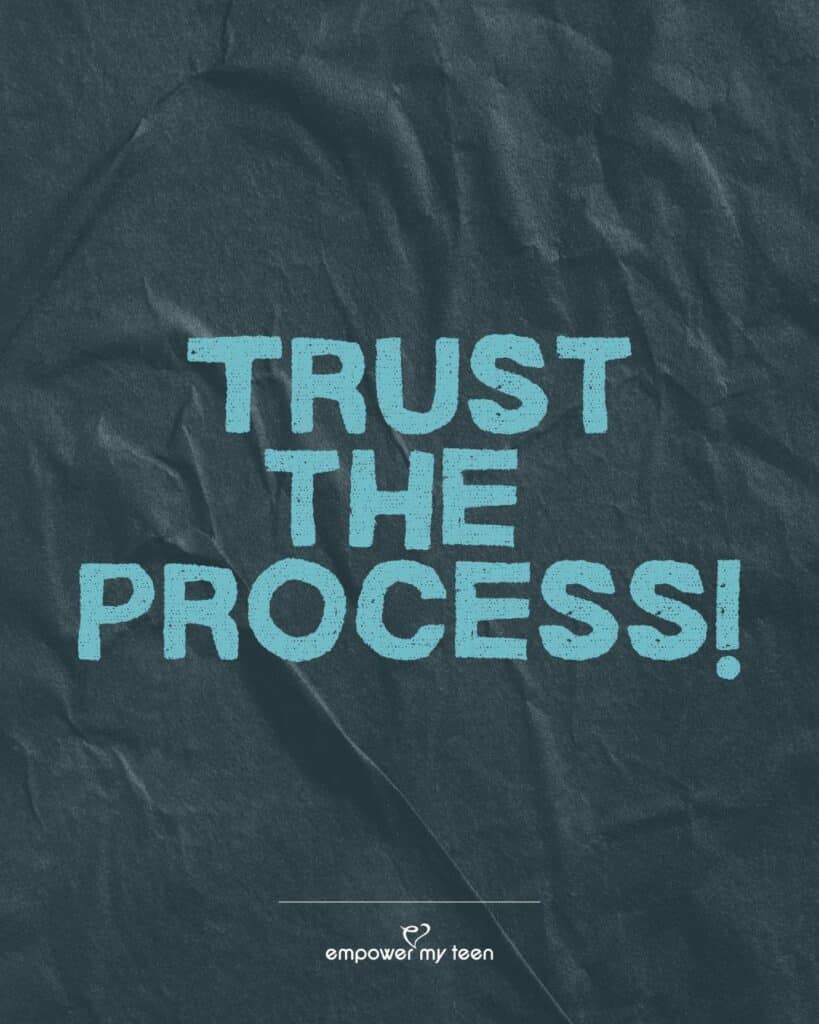What Every Parent Should Know While Their Teen Is in Therapeutic Boarding School or RTC
Imagine this: You have been dealing with an out of control teenager for months (or longer). Your child was skipping school, disrespecting authority, lying, drinking, smoking, and hanging out with the wrong crowd, among many other unhealthy teenage behaviors. You and/or your spouse have agonized over this and finally made the difficult decision to re-route your teen’s dangerous path and enroll him in a Therapeutic Boarding School.
Your first feeling is overwhelming relief. Everyone is safe and your home is peaceful once again. For the first time in a long time, you can sleep soundly without wondering where your son is. It was a truly difficult situation and decision, but you made it and things are better. You feel calmer. Deep breath.
Now what? This is when you may begin doubting your decision and start second-guessing the advice you were given. This is extremely common and very important to know what’s coming.
Avoiding Common Pitfalls: Staying a Steady Support While Your Teen is in Treatment
The First Few Weeks: Doubt, Guilt, and the Urge to Undo It All
During this time it is very normal to start doubting your decision. Questions like:
- Oh My God…what have we done?
- Did we make this choice too fast?
- Did we do everything that we could have done prior to making this decision?
- Is this really the right place for him/her?
- What if we would have just tried (fill in the blank with about 1000 different thoughts) something else?
You may be listening to the opinions of well-meaning friends and relatives, getting advice from others, or reading stories on the internet that cause you to second-guess your decision.
When Relief Turns Into Doubt: The Emotional Whiplash After Placement
Now you are staying up nights feeling like a bad parent again! 
- “Did I just abandon by child?”
- “Will he/she EVER forgive me?”
- “Should I just go get them?”
When your teen is no longer at home causing all the drama, stress and sleepless nights, it’s easy to second-guess ourselves. We often forget some of the major issues that were happening in and around your home before you decided to send them to boarding school.
The lying, manipulation, stealing, smoking pot, being addicted to video games, no motivation for anything healthy, the disconnect from healthy friends and family, feeling like a prisoner in your own home, just to name a few.
We only remember the good times, even if they were a long time ago. We remember them being so happy playing football, having dinners together, watching tv, and feeling so excited about their future.
This is the time to stay closely connected to your support system. Call the therapist at your child’s program, your educational consultant, current or past parents of other kids in the program, your personal therapist or life coach; anyone that can help you stay clear and focused about why you made this decision.
You want your teen to have a chance at a better life for their future and get the help that she needs. Remember, nothing else was working! It is normal to have these feelings and you need to have a lot of support around you to get through it. You are not alone!
Expect Manipulative Teen Behavior While In Treatment
Months 2-4: I am scared that my teen is being mistreated in the program!
You will be getting letters, emails and phone calls at this point, if you haven’t been already. You are going to be hearing things from your teen that will scare you to death as a parent and this is their GOAL.
Things such as…
- I am not getting enough food
- A staff member or another student touched me inappropriately
- I don’t feel safe here
- The academics are a joke
- Everyone here is WAY worse than me
- And the list goes on…
By all means, investigate everything you hear. I am not saying that you should ignore everything. I am just saying, remember that you did not put your teen in the program because of their amazing truth-telling skills.
They are still manipulating you to get what they want. They will put their many skills to use, hoping you will come and get them. They will find your weak spot and poke at it to get the response they want.
If they know that you are a big worrier about nutrition, they will point out how horrible the food is. If your weak spot is education, it will be how the education sucks and they will never get credit for what they are doing. Whatever your weak spot is; that is what they will focus on.

Encourage your teen to report all of their concerns to the proper staff. This is a good time to help empower them to speak up for themselves. You can say something like,
“I can hear that you are really concerned about the food. Have you talked with your therapist or any other staff member? Can you fill out a grievance form and turn it in?”
Help them to empower themselves. This is often when you will hear them back down on their story and most-often, none of it is true. Remember why you sent your child away!
Staying the Course: Why Mid-Program Progress Isn’t the Finish Line
Months 4-7: We can do this at home!
Most teen therapeutic programs are 9-12 months in length. At about month 6 or so your teen is starting to do really well. You might have had a visit with him on and off campus and maybe even 1 or 2 home visits. He seems to really be soaring in his program.
His attitude and academics are going well. He might even be caught up or ahead in his credits! He is saying all the right things that you have been waiting forever to hear. “I love you”; “I am sorry for everything I put you through”. He is totally accountable for his past behaviors and seems to have a solid plan for his future. He is respecting you and is very humble.
This is the time that a lot of parents feel like it is a great time to bring their teen home. He is not asking to go home, and the program is not recommending it, but you are feeling, for all kinds of reasons, that it is a good idea to bring him home. Maybe for financial reasons, there’s a family reunion, it’s Christmas, Granny’s birthday or school might be starting at home soon. He just seems to be doing well ENOUGH. This is NOT the time to bring him home! If you are tempted, please reach out to the staff, your ed consultant or anyone that will help you see things for what they really are.

Think of it this way, when you have your turkey in the oven at Thanksgiving and you bring it out an hour too early, it looks and smells amazing, but the inside is just not quite done.
It’s exactly the same for your teen. He needs that last few months to have lasting, permanent and sustainable change.
Also, you want him to feel accomplished by being a GRADUATE of the program. This might be the first time in a long time (or EVER!) that he has completed something this difficult and life-changing.
It’s a very proud time! Don’t short change him! Your patience will pay off big time. Trust the process. Follow the advice of the experts. They want your family to be happy, successful and whole.
💬 Ready to Strengthen Your Role While Your Teen Is in Treatment?
Parenting doesn’t pause when your teen enters a therapeutic program — it evolves. Through parent coaching, you can gain the tools, clarity, and confidence to support your child’s healing while also caring for yourself.
Let’s walk this path together.
Explore personalized coaching designed to help you:
- Respond instead of react
- Set healthy boundaries with love
- Stay grounded through emotional ups and downs
- Rebuild trust and connection with your teen
👉 Learn more about parent coaching during treatment
👉 Discover how coaching improves outcomes for families
You don’t have to figure it out alone — support is just a conversation away.





